Drought-tolerant planting – 10 beautiful border plants for dry spells
Choose the best drought-tolerant planting and keep your backyard in bloom

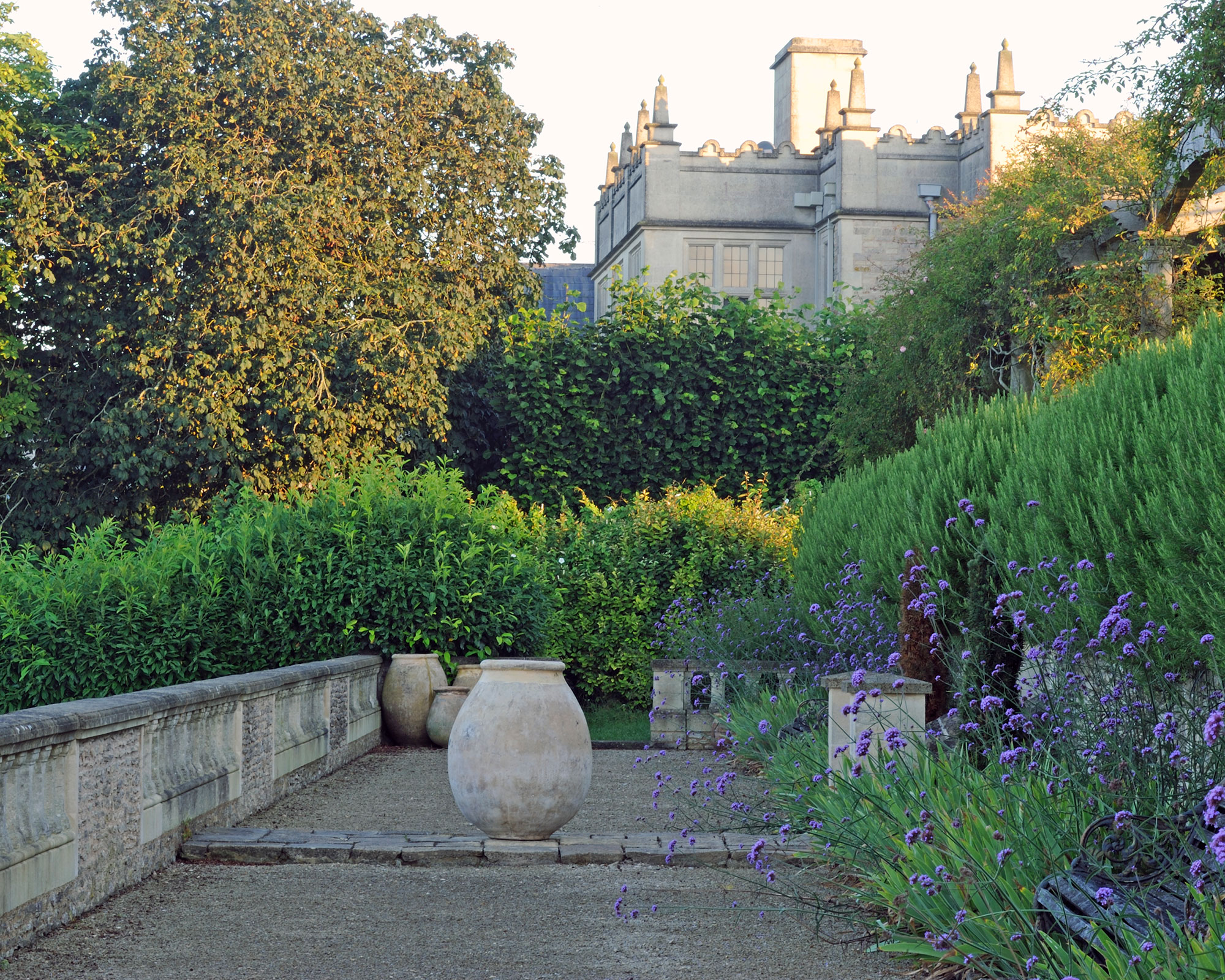
Design expertise in your inbox – from inspiring decorating ideas and beautiful celebrity homes to practical gardening advice and shopping round-ups.
You are now subscribed
Your newsletter sign-up was successful
Want to add more newsletters?

Twice a week
Homes&Gardens
The ultimate interior design resource from the world's leading experts - discover inspiring decorating ideas, color scheming know-how, garden inspiration and shopping expertise.

Once a week
In The Loop from Next In Design
Members of the Next in Design Circle will receive In the Loop, our weekly email filled with trade news, names to know and spotlight moments. Together we’re building a brighter design future.

Twice a week
Cucina
Whether you’re passionate about hosting exquisite dinners, experimenting with culinary trends, or perfecting your kitchen's design with timeless elegance and innovative functionality, this newsletter is here to inspire
Drought-tolerant planting is a must for zones that see little rainfall. But with climate change many of us now experience prolonged dry spells and record-breaking temperatures that make plants that can flourish in dry conditions a great choice.
Plants that are drought tolerant are naturally adapted to flourish when soil is dry. As long as a good root system is established, they require little water even when left directly under sunlight.
For flourishing flower bed ideas when rain is scarce, consider our favorite drought-tolerant planting – perfect for a dry garden.
Drought-tolerant planting: 10 top picks
Follow the lead of gardeners who live in the driest zones by opting for plants that can stand up to extreme conditions.
Whilst we may be able to escape to the shade indoors, our plants cannot. Choosing flowers and shrubs carefully is imperative if you want to achieve a flourishing flower bed throughout summer. By including some of the best drought-tolerant planting, you can ensure a blossoming garden all season long.
So, what types of plants do you need? The plants that can cope with hot, dry conditions usually originate from hot, dry and rocky areas of the world with a warmer climate, such as Florida, Texas and California. They have evolved to thrive in these conditions, which is why you’ll have more success with planting in dry conditions if you choose the right plants. For example, plants with silver foliage are typically from warm and dry regions, as the leaves are able to reflect the harshness of the sun's rays.
Whatever your taste, you’ll find a plant to suit your style, whether it’s a gravel garden of flowering plants or more exotic varieties. There are a few ways to spot drought-tolerant plants – look at their leaves, as they tend to have one or more of the following attributes: spiky, needles, silver-colored foliage, tiny leaves or waxy leaves. All these characteristics help the plant deal with heat.
Design expertise in your inbox – from inspiring decorating ideas and beautiful celebrity homes to practical gardening advice and shopping round-ups.
1. Verbena
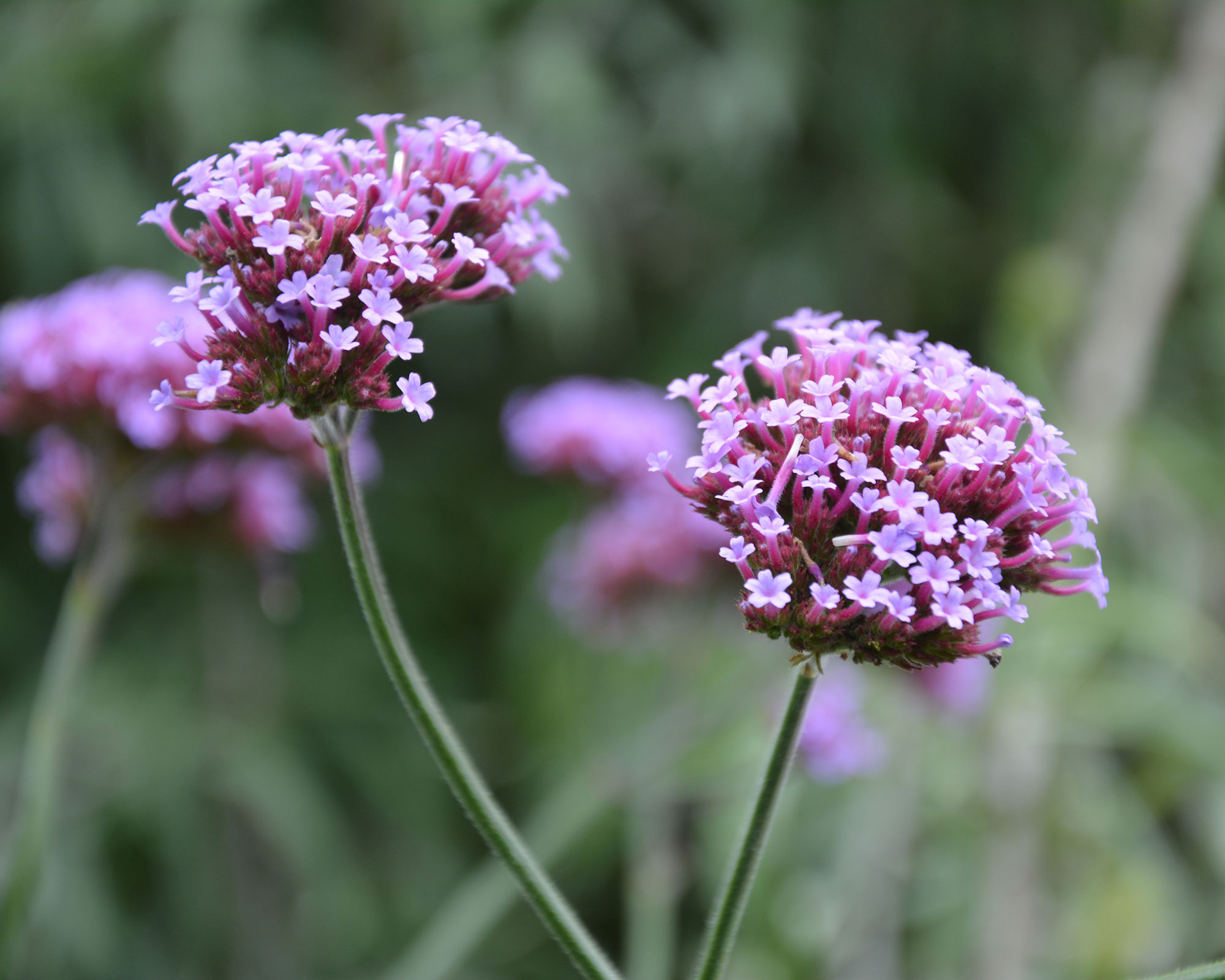
The tiny clusters of bright purple flowers of verbena blossom throughout summer and well into fall, so choose it as drought-tolerant planting that will brighten borders for a long period. Ideal for wildlife gardens, it is known for attracting butterflies and bees due to its rich nectar, and the plants can reach heights of up to 24in (60cm).
2. Dierama
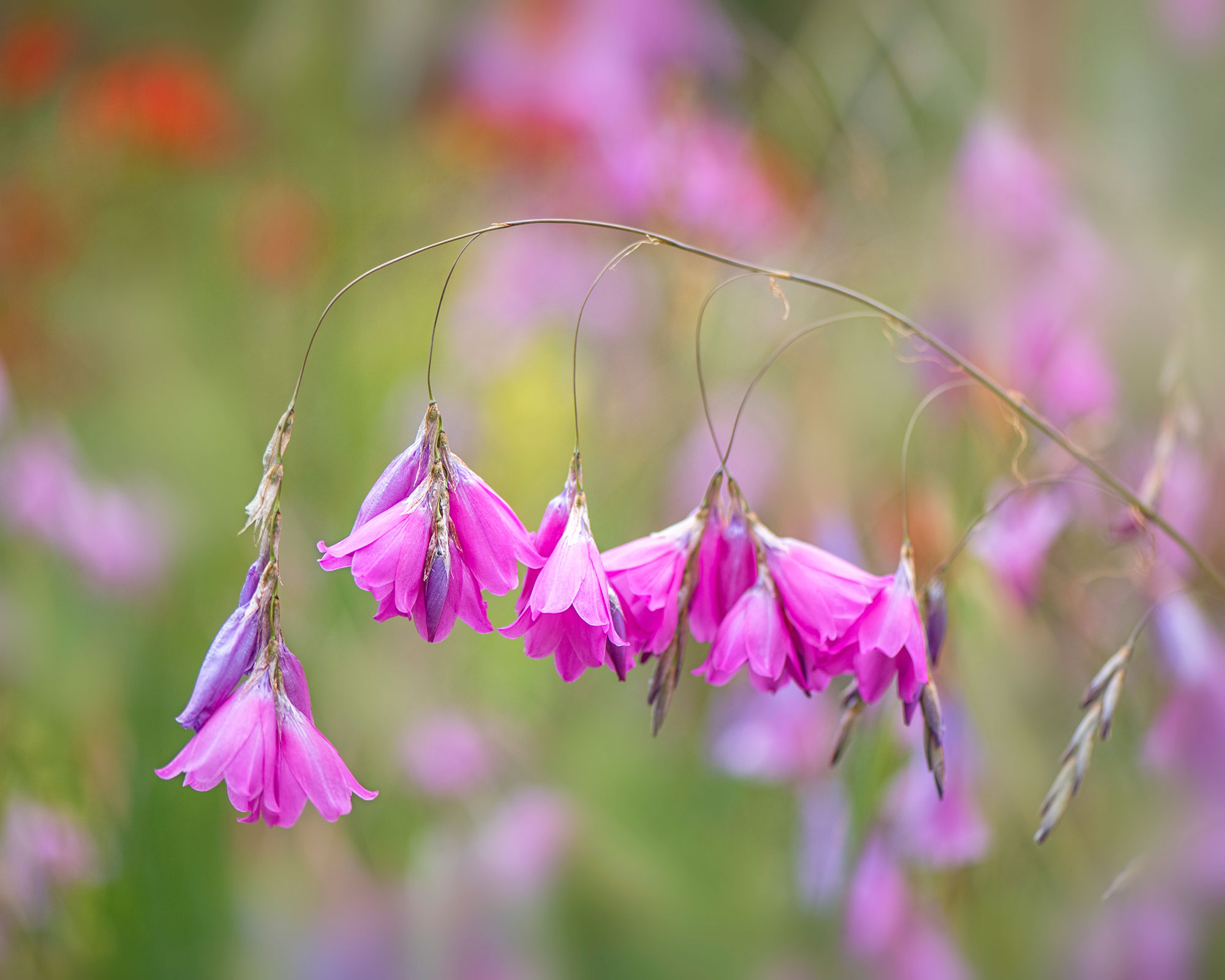
With elegant, bowing flower stems and bell-shaped blooms, dierama is often referred to as ‘Angel’s fishing rod’ and is best planted in spring. Although they are part of our selection of drought-resistant planting, avoid putting them into the ground when the weather is hot or dry, as well as when it is cold.
To make space for the stems allocate plenty of space in borders to dieramas. A clump can reach 5ft (150cm) in height, and 20in (50cm) in width.
3. Iris
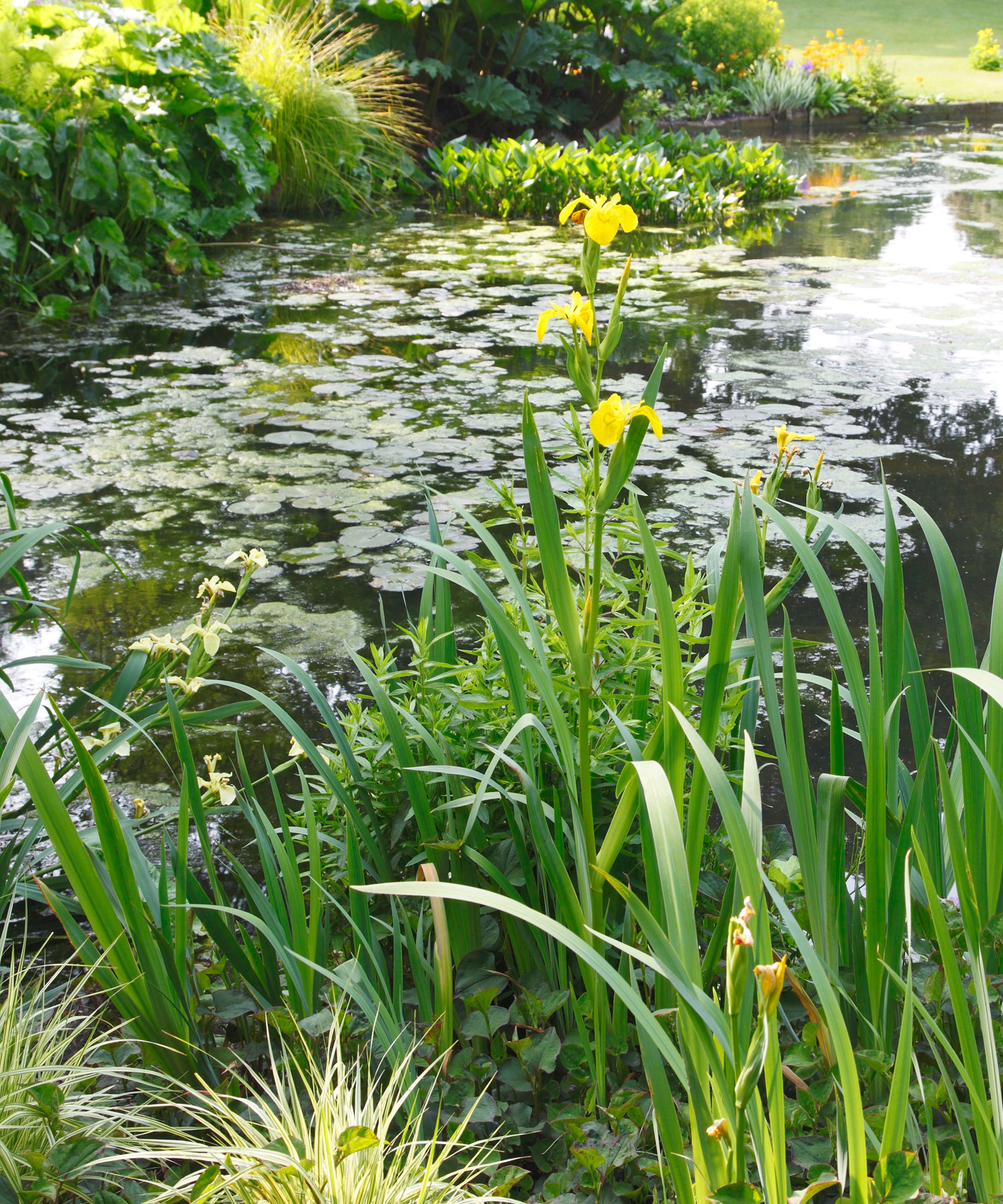
When established, iris is incredibly drought-tolerant planting, however newly planted must be watered on a regular basis in order to develop roots.
To grow irises in your yard, plant in fall if you purchase bulbs. Rhizomes are also best planted in fall, but if you buy them at a different time of year, plant them then rather than waiting.
Irises are perennials that can flower for many years, so they’re well worth including in borders.
4. Cape daisy
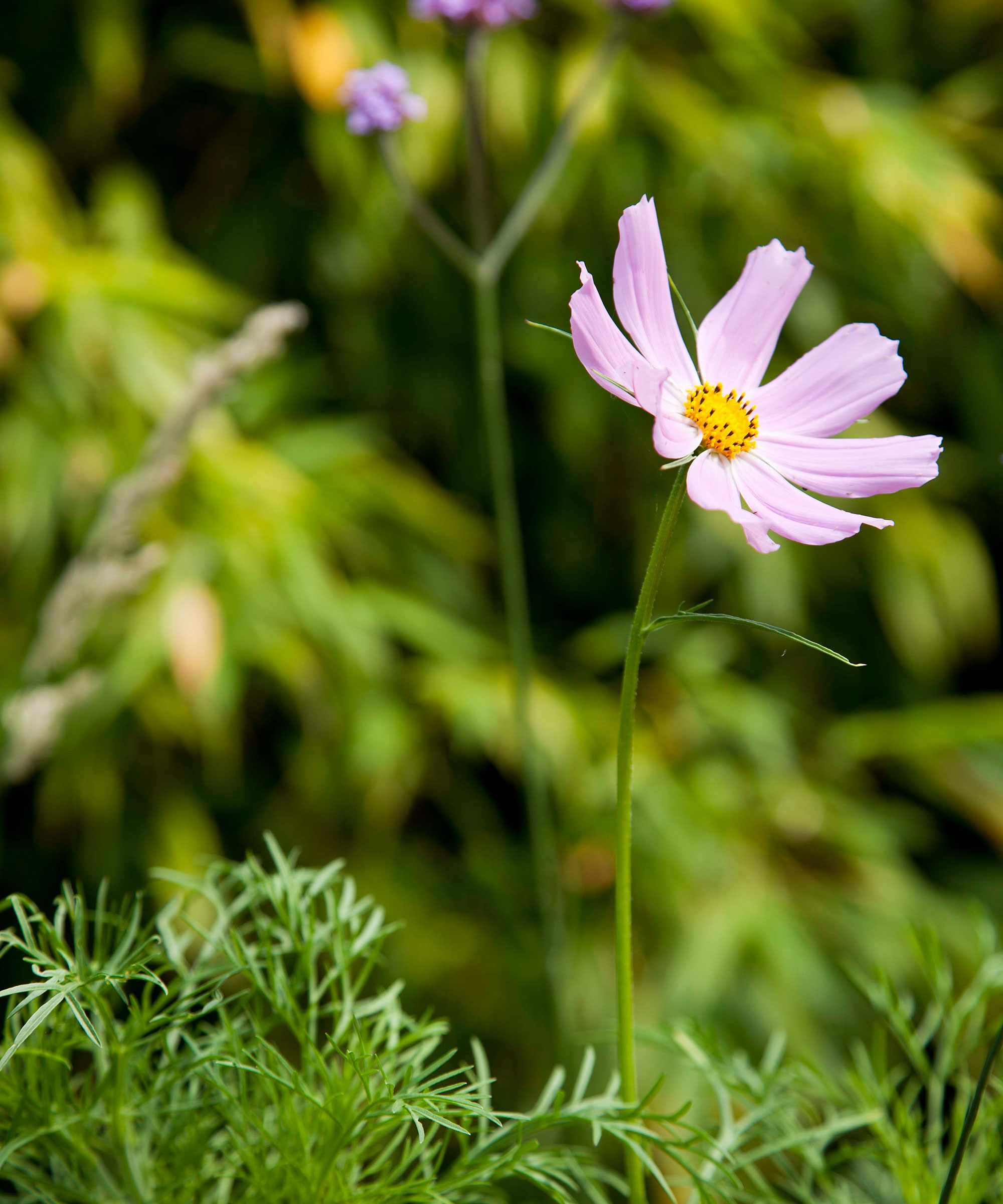
South African Cape (Osteospermum spp) daisies – also know as African daisies – bloom even with just half an inch of water once a week. They’re also great for gardeners who want to produce large quantities of blooms over a long time as they flower through the summer and into the fall.
Note that they’re also one of the best plants for hanging baskets, creating a bold display.
5. Russian sage
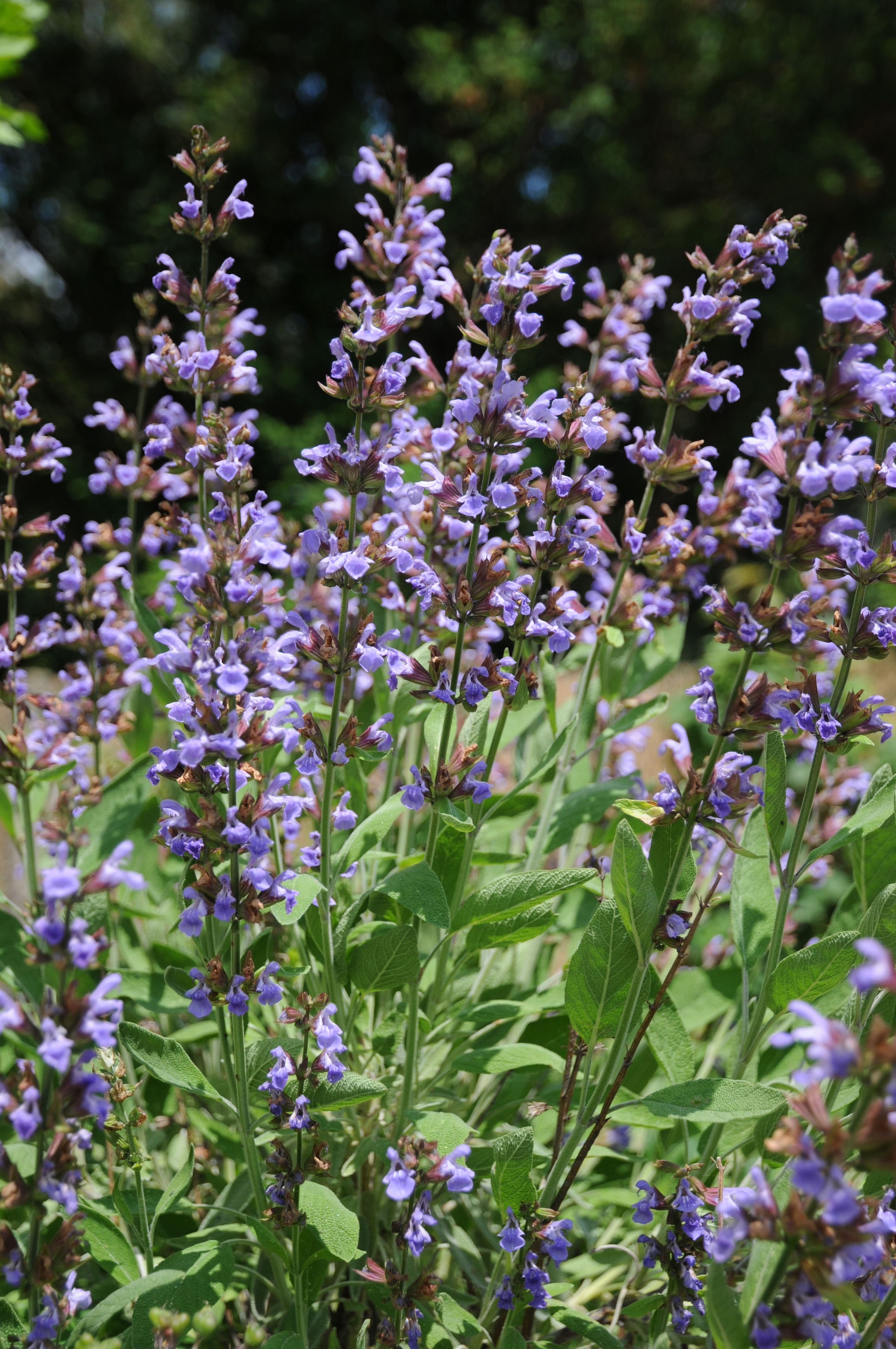
Russian sage (Perovskia atriplicifolia) is a real sun-worshipper and with the tiny, violet flowers which appear on silver-gray spikes an impactful addition to the yard. Plants can reach around 4ft (1.2m) in height and spread 3ft (1m).
The plant looks its best at summer’s end and into fall, and brings pollinating insects to the yard. Be aware that it is best to cut back Russian sage annually in mid to late spring.
6. Sea holly
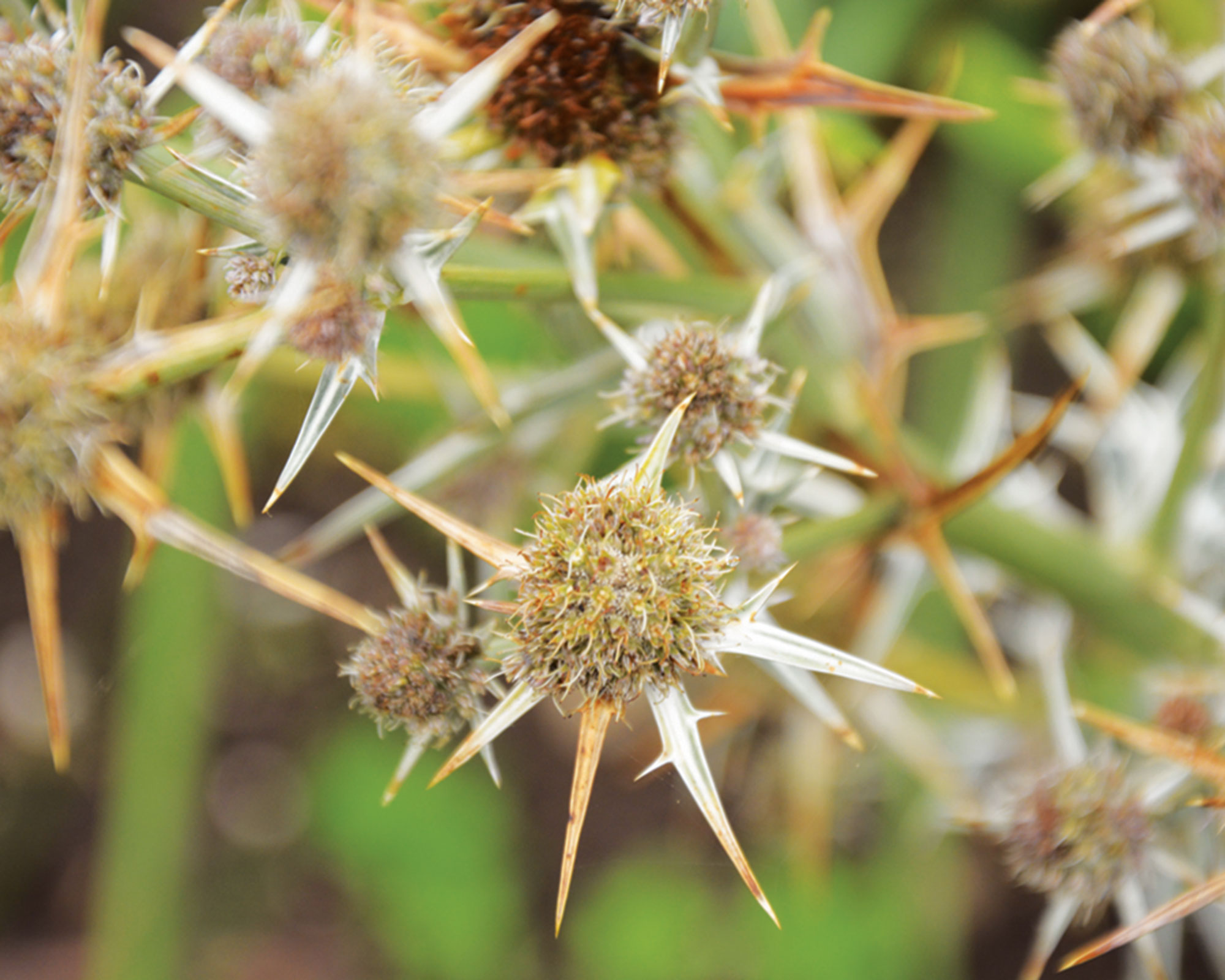
A favorite in Mediterranean garden ideas and with large vivid blue flowers complemented with deep green leaves, sea holly (Eryngium) is often planted with Russian sage for drought-tolerant planting with striking impact. It
Sea holly flowers in summer and fall and also thrives in containers with good drainage; it cannot tolerate cold and wet weather.
The flowers can be dried and used in indoor displays.
7. Jerusalem sage
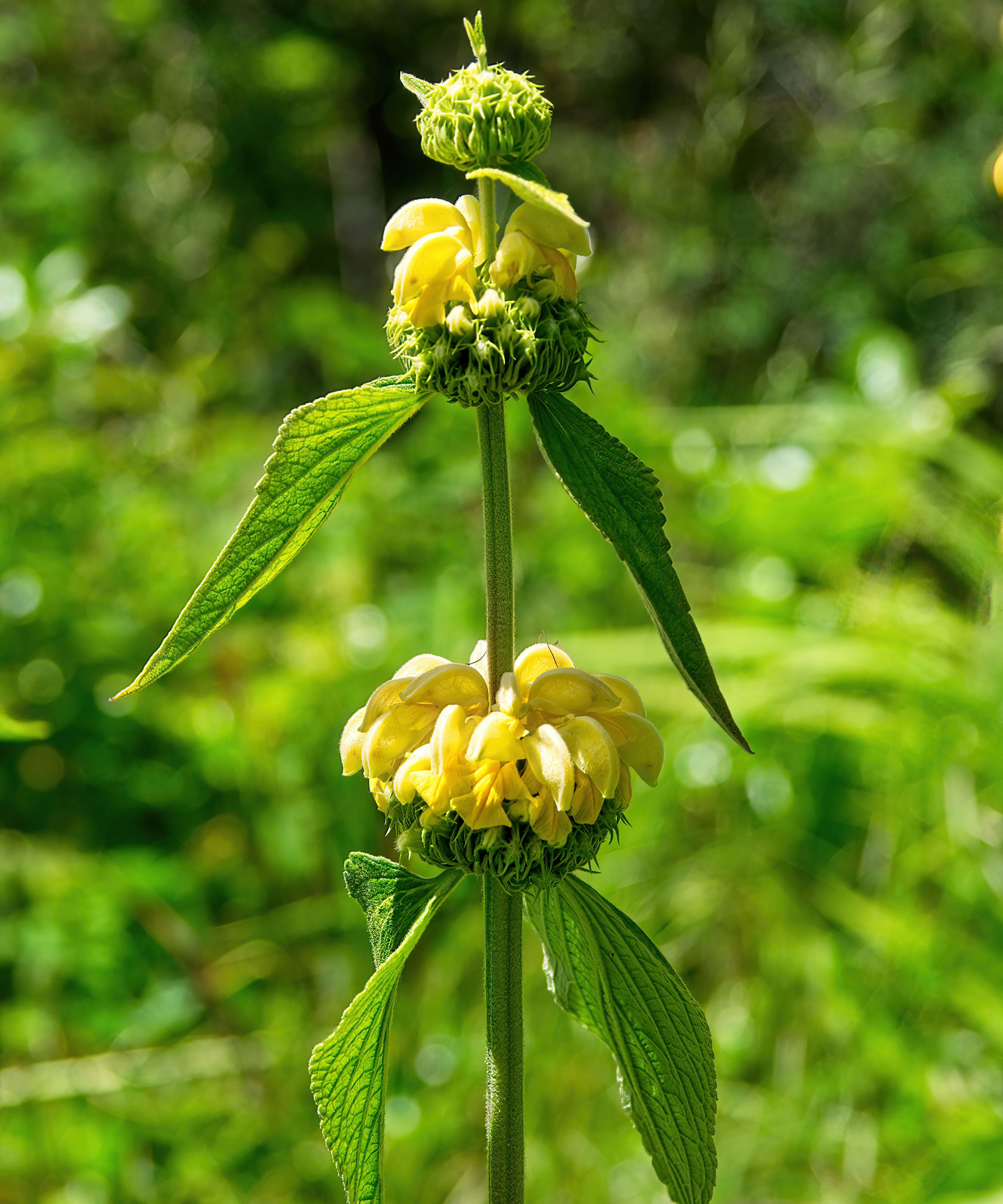
Jerusalem sage (phlomis) is a small evergreen shrub and the plant can flower from late spring into late fall. Exceptionally fast growing, it can reach up to 4ft (1.2m) tall with an equal spread.
This drought-resistant plant doesn’t like wet winter conditions, so use grit in the planting hole for good drainage.
8. Sedum
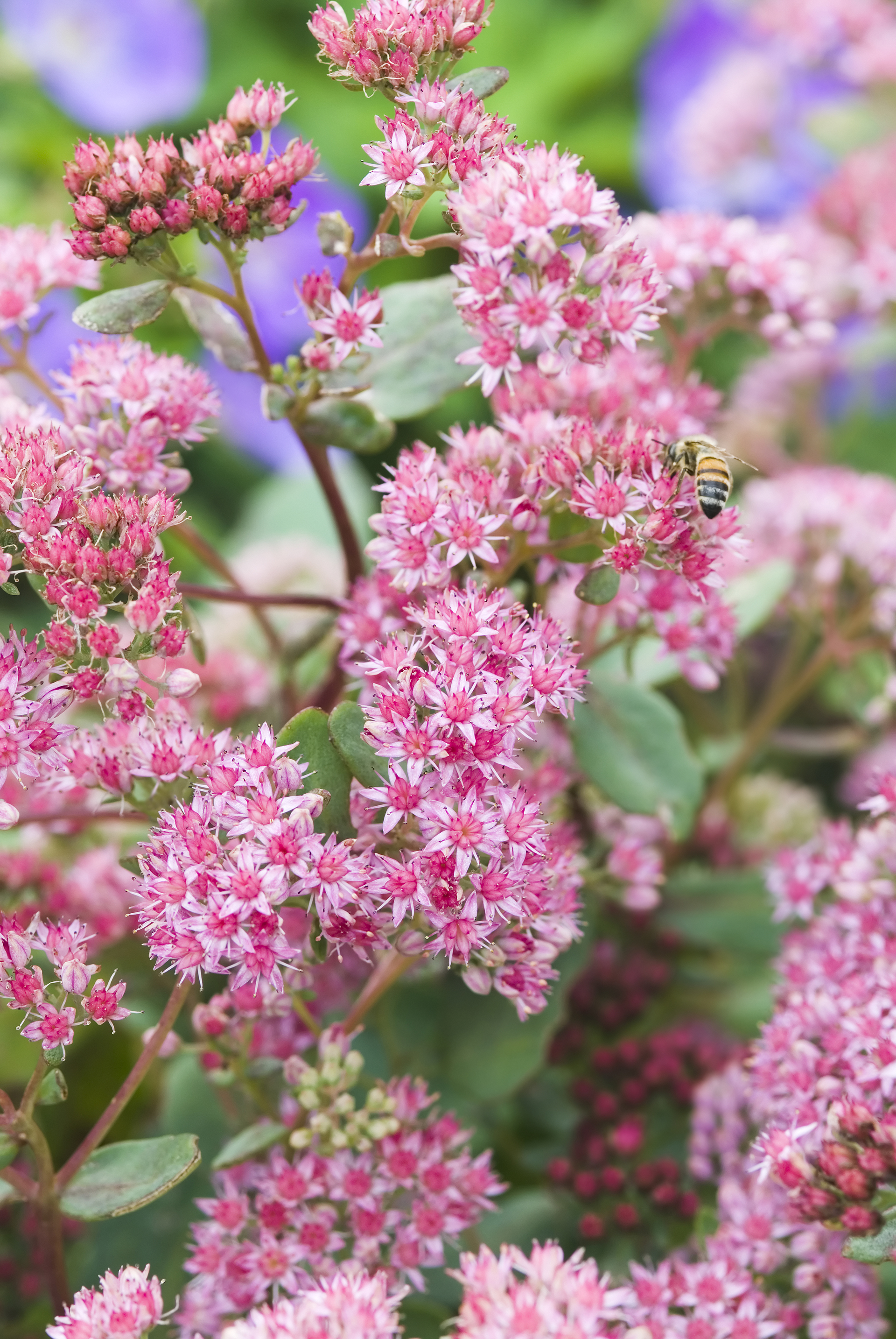
One of the easiest plants to grow, there are few that are more forgiving of bad soil and harsh sun than the sedum plant. A rarity to find a plant that thrives even when neglected, sedums are perfect for novice gardeners.
9. Lavender
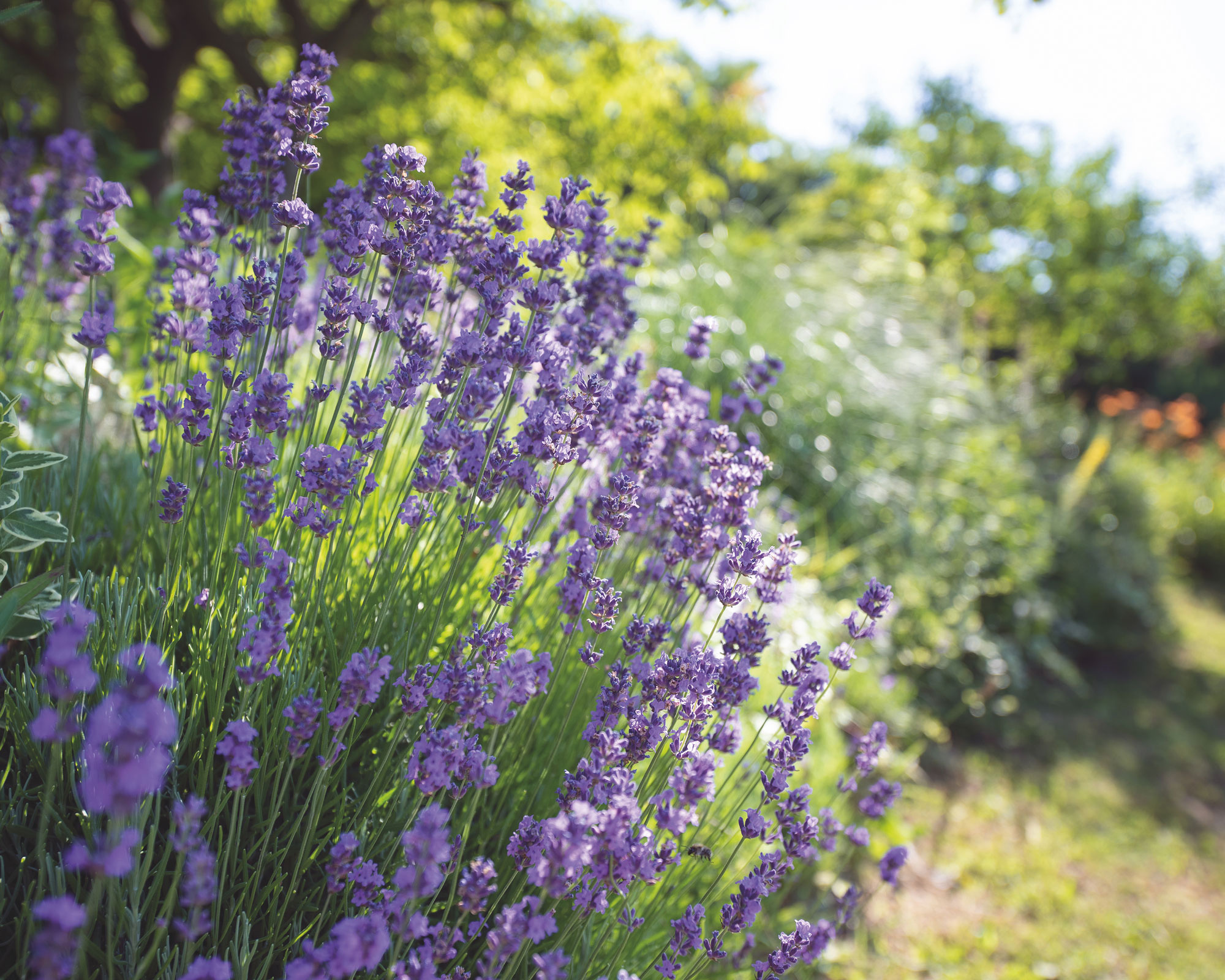
An iconic native to the Mediterranean and the Middle East, lavender copes well in sunny conditions. Growing lavender is easy and, with its strong aromatic flowers and wonderful color, lavender should be a staple in any drought-tolerant yard.
10. Ornamental grasses
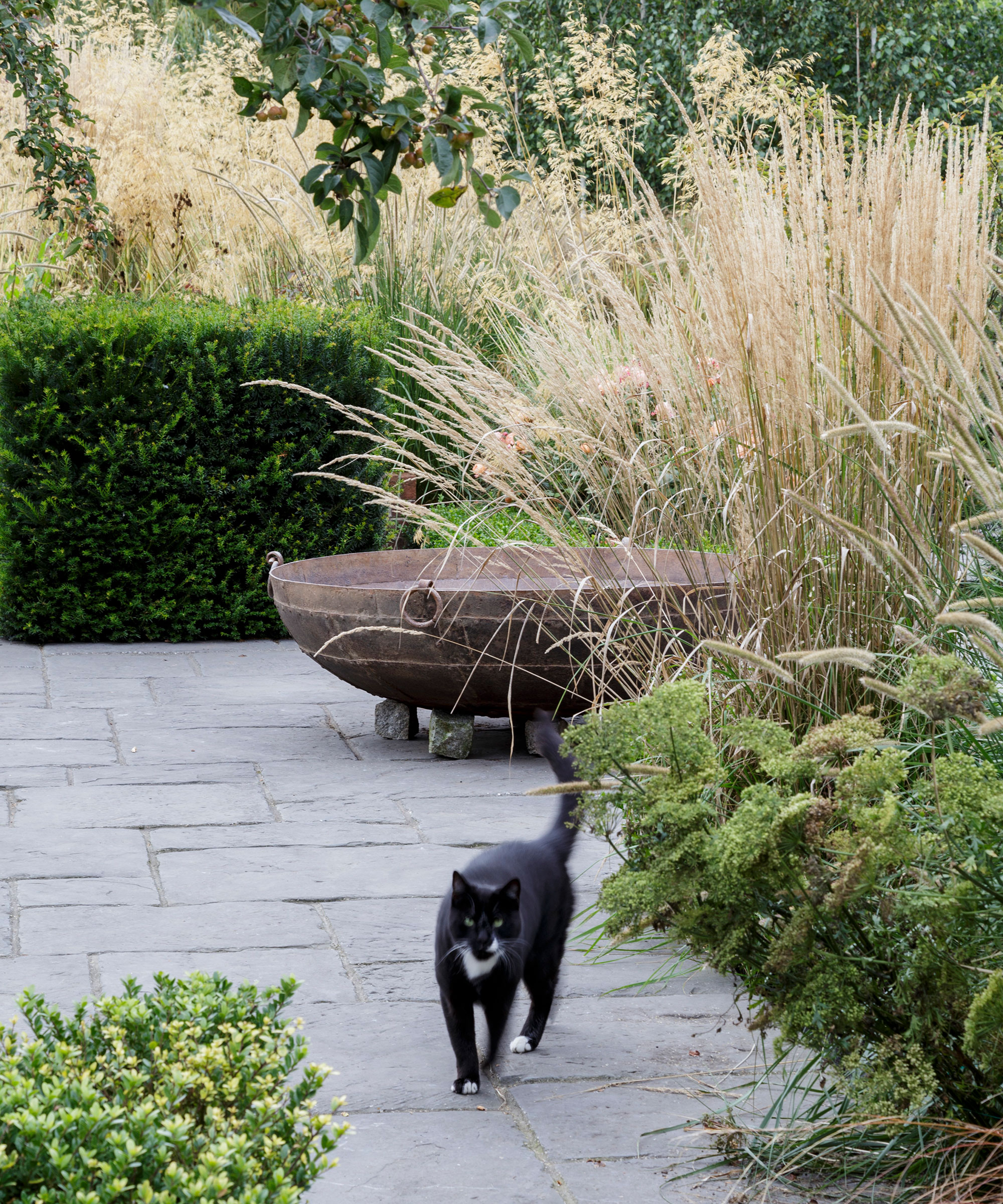
Growing ornamental grasses (stipa tenuissima) are low maintenance and this one is a great pick for a dry garden. It’s compact with wonderful flowerheads that sway in the breeze. It’s a great plant partner for colorful flowering perennials.
As well as being perfect for your dry garden ideas, ornamental grasses are the perfect solution for gardens that lack privacy. Being overlooked is the daily reality for most people living in built-up areas with houses on either side. If this is the case for you, then consider investing in containers of wavy, tall grasses, for garden privacy ideas that will allow you to create a more secluded feel.
What does it mean for a plant to be drought tolerant
A plant that is drought tolerant is simply one that can tolerate dry conditions. There is actually a wide range of plants that are drought tolerant, including container and border favorites, grasses, perennials, climbers, shrubs, palms and trees.
‘There are many plants that can tolerate drought once they are established,’ says Teresa Conway, gardening writer, Homes & Gardens. ‘You might want to choose them for containers, too, as they’ll reduce the time you have to spend watering.’
What are the best drought tolerant plants?
Plants with silver foliage are able to reflect sun away from the plant, while plants with hairs can trap moisture and those with small or needle-like leaves lose less water through evaporation.
There are also ways to improve your soil conditions to help plants thrive. Many Mediterranean plants like free-draining soil and will not like sitting in waterlogged sites over winter, so it’s important to improve soil structure.
Once established, you’ll have tough plants that won’t need much care. Drought-tolerant planting is an exciting opportunity to transform problem areas of the garden into a fantastic display – and you won’t have to worry about asking your neighbor to do holiday watering.

Jennifer is the Digital Editor at Homes & Gardens, bringing years of interiors experience across the US and UK. She has worked with leading publications, blending expertise in PR, marketing, social media, commercial strategy, and e-commerce. Jennifer has covered every corner of the home – curating projects from top interior designers, sourcing celebrity properties, reviewing appliances, and delivering timely news. Now, she channels her digital skills into shaping the world’s leading interiors website.